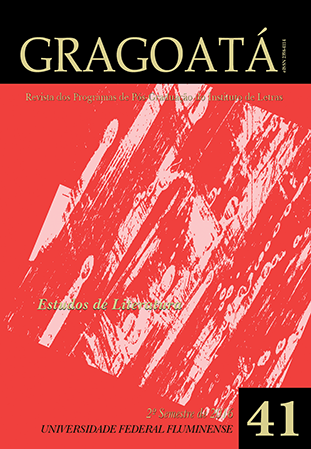If Goa is your land, which are your stories? Narrating the Village, Narrating Home
DOI:
https://doi.org/10.22409/gragoata.v21i41.33427Keywords:
Goa, multilingualism, literature, village.Abstract
Goa, India, is a multicultural community with a broad archive of literary narratives in Konkani, Marathi, English and Portuguese. While Konkani in its Devanagari version, and not in the Roman script, has been Goa’s official language since 1987, there are many other narratives in Marathi, the neighbor state of Maharashtra, in Portuguese, legacy of the Portuguese presence in Goa since 1510 to 1961, and English, result of the British colonization of India until 1947. This situation already reveals that there is a relationship among these languages and cultures that at times is highly conflictive at a political, cultural and historical level. In turn, they are not separate units but are profoundly interrelated in the sense that histories told in one language are complemented or contested when narrated in the other languages of Goa. One way to relate them in a meaningful dialogue is through a common metaphor that, at one level, will help us expand our knowledge of the points in common and cultural and literary differences among them all. In this article, the common metaphor to better visualize the complex literary tradition from Goa will be that of the village since it is central to the social structure not only of Goa but of India. Therefore, it is always present in the many Goan literary narratives in the different languages though from perspectives that both complement and contradict each other.
---
Original in English.
Downloads
Downloads
Published
How to Cite
Issue
Section
License
Authors who publish in Gragoatá agree to the following terms:
The authors retain the rights and give the journal the right to the first publication, simultaneously subject to a Creative Commons license CC-BY-NC 4.0, which allows sharing by third parties with due mention to the author and the first publication by Gragoatá.
Authors may enter into additional and separate contractual arrangements for the non-exclusive distribution of the published version of the work (for example, posting it in an institutional repository or publishing it in a book), with recognition of its initial publication in Gragoatá.

Gragoatá is licensed under a Creative Commons - Attribution-NonCommercial 4.0 International.











